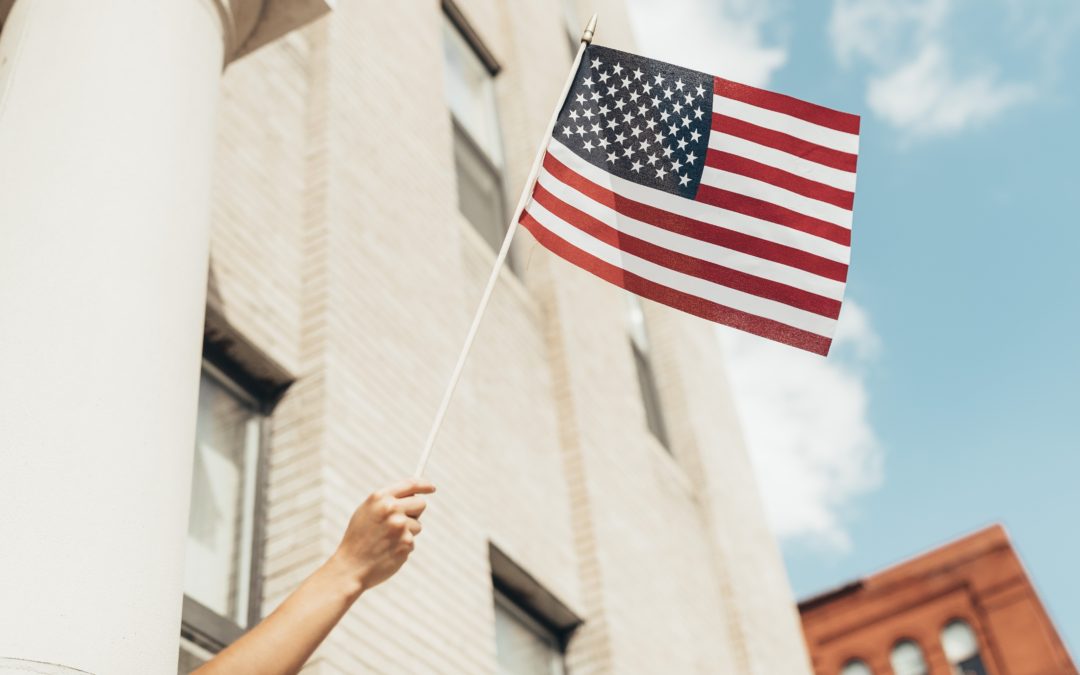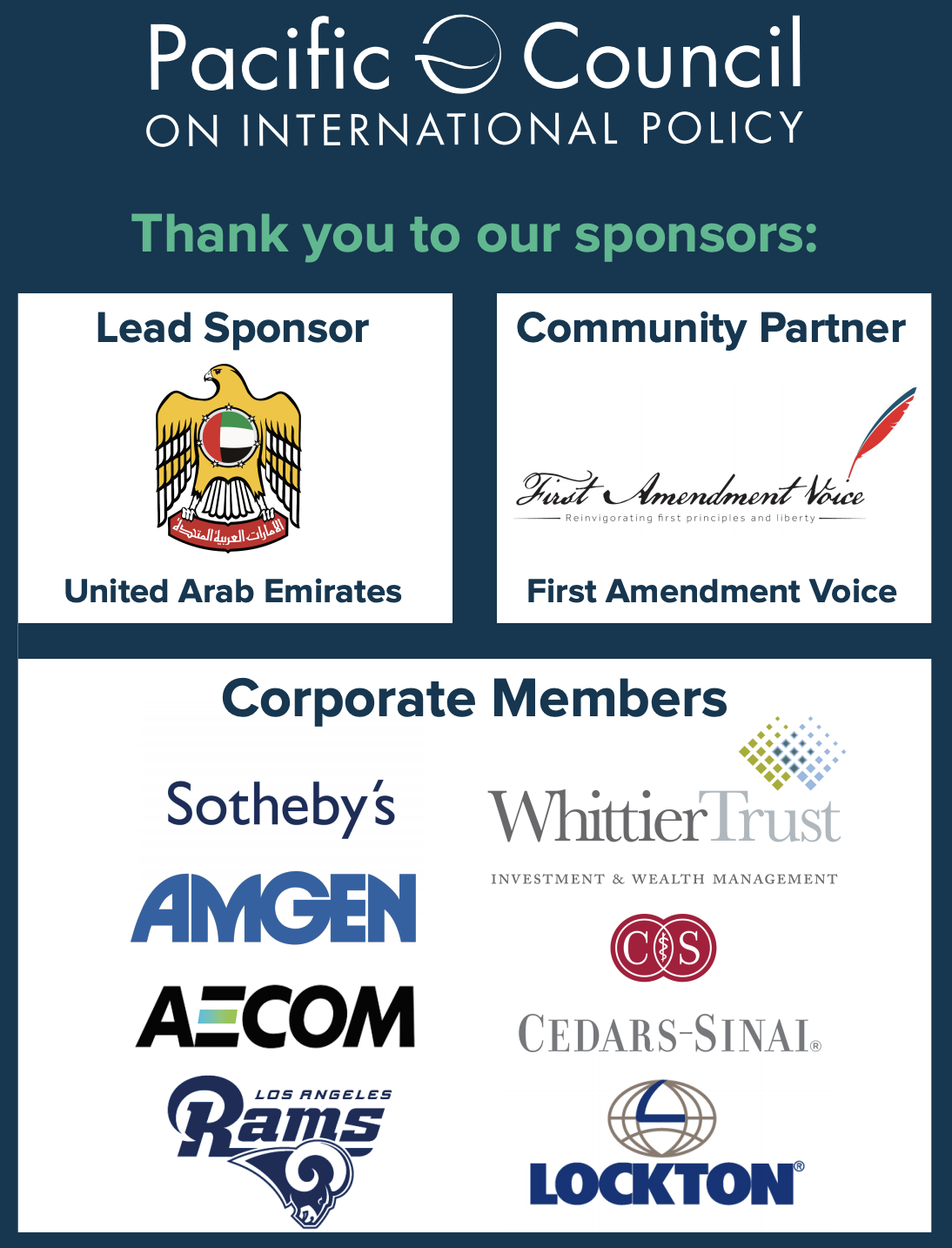
by Dan | Jun 25, 2019 | Newsletter, Uncategorized
Dear Friends,
Many of you may have noticed we kicked off a membership drive last week. Please consider becoming a paid member to help us bring FAV programming to those who lack the resources or access. We are grateful to a generous donor who provided matching donations to help incentivize our campaign. Double your impact now due to the matching donations. More details below. Paid membership comes with exclusive benefits and the knowledge you are helping FAV reach those who may not feel they have a voice in their communities.
This month’s good news story features a community partner, the i5 Freedom Network. The Executive Director, Brenda Wells, started the organization to make an impact against human trafficking. She is currently collaborating with FAV to hold a community forum in San Clemente to raise awareness about illicit massage parlors and to pass a city ordinance to make it more difficult for those establishments to open up. Culling best practices from other nearby cities, Brenda proposed measures that would significantly strengthen the current ordinance. By reviewing websites that feature illicit establishments in town, Brenda assessed that almost one dozen illegitimate establishments operate in San Clemente. These are usually run by organized crime. Most people are unaware of this going on. The i5/FAV public forum will feature speakers to educate the public, including from law enforcement, legitimate massage establishments, city officials, and a survivor of massage parlor trafficking.
The goals of the public panel discussion are twofold: 1) gain momentum to pass a significantly strengthened massage parlor ordinance and 2) raise public awareness on the importance of individuals lending their voice to important community conversations. Brenda is a heroine in the local community, but more importantly, will inspire average citizens to get involved in making their city safer and preventing trafficking from occurring in San Clemente. First Amendment Voice is proud to partner with Brenda and the i5 Freedom Network.
Citizenship is not a spectator sport! If you like our newsletter, please share with a friend!
Steve
June Membership Drive
Please consider supporting FAV efforts to push back against fear and apathy and inspire people to #FindTheirVoice and contribute to public discourse. Remember Gary’s story from the April newsletter? If you didn’t get a chance to read it, click the link. Story’s like Gary starting an Instagram contest to promote understanding about Unity and Division in our communities are why FAV exists. Basic membership costs just $25/ year and offers an automatic $25 discount on Symposium registration, in addition to exclusive benefits like our national coffee talk live videoconferences.
Would you like to help others #FindTheirVoice as well as enjoy the benefits of unique FAV programming? Consider becoming a Sustaining member at either the $1,000 or $500 level. Sustaining members get an invitation to our VIP tour of the Capitol Building the evening before the National Symposium in Washington, D.C.
DOUBLE YOUR IMPACT
Thanks to the generosity of a FAV donor, we have two $5,000 matching grants. One to help stimulate the membership drive and the other to challenge $1,000 donors to step up and support FAV efforts to extend our programming to those who might not have the resources to attend without assistance. FAV routinely convenes very diverse audiences who get the opportunity to interact with each other in enriching environments. Please help us achieve our goal. Any level of contribution helps us reach the $5,000 mark. Give here
In The News
A report from the Hudson Institute has interesting statistics on the state of anti-Semitism in the U.S. More details here.
This is a fascinating piece about young people who watched YouTube content, both far right and left, and how it can sway beliefs. It’s a fascinating look at one young man’s journey. Read more.
Save the Date
4th Annual National Symposium September 20-21 – the theme is “Polarization.” Paid members get an invitation to an exclusive VIP tour of the Capitol Building after hours. Spaces are limited, so register soon. Sustaining level donors at the $1,000 level get two tickets to the VIP tour while $500 level donors get one ticket. Guarantee that you get the experience to explore polarization in our society.

by Dan | Jun 12, 2019 | Uncategorized
 There has been quite a bit of controversy surrounding students’ political expression on public school campuses in recent years.
There has been quite a bit of controversy surrounding students’ political expression on public school campuses in recent years.
From the self-proclaimed, Trump-supporting teacher who said she was simply following orders when censoring a student’s “Make America Great Again” T-shirt in a school yearbook photo to the teen who complained against the school after his “MAGA” hat was blurred in his school yearbook, there are multiple debates happening around the country about what public schools should do about their students’ political expression – without risking a violation of their First Amendment freedoms of self-expression.
Unsurprisingly, these are just some of the many school dress code controversies we’ve seen in the news over the past several years, and it’s not isolated to the United States, either. France has had its own share of controversy over so-called “burqa bans” and Austria recently banned Muslim headscarfs in primary schools.
Whether it’s political attire, religious garb, or other contentious forms of students’ expression through fashion, should public schools be doing more or less to regulate what their pupils are wearing while on campus? Let’s examine both sides of the issue as it’s happening in the United States:
Arguments in Favor of Dress Code Bans
Dress code bans in the United States typically revolve around gendered fashion expressions, such as short shorts/skirts and visible bra straps for girls or sagging pants for boys. However, the upswing in political interest among minors has led to these dress code controversies involving political expression (most frequently involving Trump/MAGA, though this trend is unlikely to end when Trump leaves office, regardless of the next president’s political affiliation).
By banning political expression on public school grounds, educators and administrators (as public employees) risk violating students’ First Amendment rights. However, those in favor of these dress code prohibitions on political attire have argued that the existence of any kind of dress code could constitute a violation of a student’s freedom of expression and yet, multiple court cases have upheld the validity of school dress code regulations in other areas.
Additionally, those in favor of the bans argue that politicized attire can detract from learning and/or create a hostile learning environment for some students whose identities are inextricably linked with certain forms of political attire (e.g., Hispanic students or children of immigrants in class with another student wearing a “Build the Wall” t-shirt).
Arguments Against Dress Code Bans
Those who are against schools banning forms of political speech/expression frequently cite the Tinker v. Des Moines Supreme Court case, in which the Supreme Court sided with students who were suspended for wearing black armbands to protest the war in Vietnam. Upon reaching a decision the majority argued, “students don’t shed their constitutional rights at the school house gates.”
Thus, opponents of dress code bans believe there should be few (if any) restrictions on what students can and cannot wear to school when it comes to political attire. This debate will likely go on for many more years without a clear decision covering every case that comes up. But in the meantime: What do you think? Should students be able to wear whatever political clothing they want on public school campuses or should this form of self-expression be banned?

by Dan | May 30, 2019 | Uncategorized
Dear Friends,
I spent some time reflecting on a combat deployment yearbook last weekend as I worked on the 4th draft of a book manuscript. It was appropriate on Memorial Day, not only to consider those who made the ultimate sacrifice, but also to renew my own vigor in response to service. It reminds me of the message I gave troops on Memorial Day in combat. Do we want to truly honor those who laid down their lives? Then we should not only remember them, but we should live our lives in a way to honor their sacrifice. We should not only serve great causes but also contribute to the public discourse as conscientious citizens, whether at the school board meeting, the local VFW, Rotary Club, or faith group. We should model citizenship for our children as a means to demonstrate why democracy requires vibrant citizens. That is a way to really show our appreciation. After all, we like to say that the men and women who gave the fullest measure did so for our freedom. If we believe that, we should exercise that freedom.
For example, a teacher named Amy recently taught her third grade class about environmental awareness. After explaining some of the hazards that scientists and advocates have pointed out, she challenged the kids to look for ways to make a difference in their own lives. They worked in groups and considered different ideas that might reduce waste in their school, at home, or by helping make adults more environmentally conscious. One of the groups proposed eliminating the plastic milk containers in the cafeteria that use straws and are not made of recyclable material. They asked why the school did not use the traditional recyclable milk cartons that required no straw? Struck by the common sense of the idea, Amy encouraged her students further. They gathered a list of over 400 names on a petition. They sent a letter to the principal, and Amy reached out to the district level official in charge of managing the school’s cafeteria program.
What struck me about this example was how uncommon it seemed. Amy could have simply commended the students for the great idea. She might have mentioned it to her teacher colleagues in the faculty lounge, and that could have been it. Instead, she modeled to the students how civic-minded individuals affect change in their community. The students “learned by doing” after receiving their environmental lesson. And so, the lesson continues throughout the school year. The district level leader addressed the students in class last week. She explained the process of making changes to the procurement system for the cafeteria. She also approved the students to test a pilot program to assess the impact of their idea. The students are also learning that good ideas are only the start of impacting their environment (or affecting any change). Thomas Edison stated that genius was 1% inspiration and 99% perspiration. That’s a good life lesson for citizens. Amy’s students are learning that as well.
While Memorial Day Weekend is a time for reflection, a time to be inspired by examples of tremendous sacrifice, the rest of the year is a time for participation at all levels of community and family. In that way, you will both remember those who have sacrificed as well as honor their memories through your service to the community. Serving something greater than yourself tends to bring happiness in life.
Citizenship is not a spectator sport! If you like our newsletter, please share with a friend!
Steve
2019 National Symposium
#FindYourVoice at this year’s National Symposium where we will explore polarization, its current impact on society, and the role each of us plays.
Mark your calendars for September in Washington, D.C. As soon as FAV confirms a venue and date, (either September 14th or 21st) we will notify all.
Spotlight on our Partners
First Amendment Voice is a community partner for the Global LA Summit held on May 10, 2019, which featured two panel discussions on press freedom. They also hosted a Difficult Conversations workshop featuring Kern Bear the following day. FAV is grateful for the Pacific Council’s partnership and support to raising awareness and inspiring civic action amongst their members. >>LEARN MORE
In the News
This Religion News Service reports on findings of this year’s American Muslim Poll, the fourth annual survey of U.S. faith communities conducted by the Institute for Social Policy and Understanding in Washington, D.C. READ MORE
You may have heard about the controversy over a police raid of a journalist in San Francisco that continues to make national headlines. The following Columbia Journalism Review piece provides an overview. READ MORE

by Dan | May 22, 2019 | Uncategorized
The number of headlines about the First Amendment — particularly about free speech issues — are seemingly endless nowadays, but what’s happening on college campuses, specifically, in 2019? Here are three major free speech issues to be aware of this year:
President Trump’s Comments on Free Speech in Higher Education
In a recent speech before the Conservative Political Action Committee, President Trump suggested he might sign an executive order to guarantee free speech protections on college and university campuses — and revoke funding for those institutions if they did not adequately protect every students’ freedoms, regardless of political affiliation.
An issue with this proposed order, a First Amendment rights lawyer explained, is that it could potentially allow the executive branch to unilaterally determine which campuses are pro or anti-free speech. In other words, this executive order could allow the president to pick and choose which colleges and universities should lose funding over free speech issues on their campuses, while others may fly under the radar if the president doesn’t deem their offenses serious enough to warrant a review and possible revocation of federal funds.
Pledge of Allegiance
In the past few years, there have been plenty of controversies surrounding the national anthem. In 2019, the Pledge of Allegiance is back in the news, after a California community college’s Board of Trustees removed the Pledge from its regular proceedings due to what the board’s president described as “reasons relating to its history and symbolism.”
The school was inundated with calls, mail and electronic messages allegedly threatening the Board and the school for its removal of the Pledge of Allegiance. In a late January Board of Trustees meeting, one of the members recited the pledge while holding a small American flag, only to be drowned out by vocal protesters. In another Board meeting just two weeks later, the Board voted to reinstate the Pledge of Allegiance for its regular meetings once again.
Limited Academic Freedom for Adjunct Faculty
A final (ongoing) issue affecting higher educational institutions in 2019 is the adjunct faculty crisis. Adjunct faculty members are paid less (with no benefits) and have substantially less job security than their tenured counterparts (adjuncts can teach multiple classes one semester then find out there are no available classes for them the following semester). Due to this lack of job security, adjuncts are constantly on edge about what they can and cannot say in the classroom, to colleagues, and/or in committee and departmental meetings.
This is arguably an implicit violation of adjunct instructors’ First Amendment rights, as nobody is outwardly telling them what they can and cannot say. Rather, they can be penalized for any unwelcome speech by not having their teaching contracts renewed for another semester. This means that job security is an essential issue for non-tenured faculty in 2019 because it is key to protecting their free speech rights in the classroom and on campus.

by Dan | May 8, 2019 | Uncategorized
 Everyone knows about freedom of speech, the press and religion in the First Amendment, but surveys have shown that a majority of Americans either don’t know or forget that the freedom to petition and to peacefully assemble are also included in the First Amendment. While “peaceful assembly” may refer to public congregations of individuals for any reason, public protests are most commonly associated with our freedom to assemble.
Everyone knows about freedom of speech, the press and religion in the First Amendment, but surveys have shown that a majority of Americans either don’t know or forget that the freedom to petition and to peacefully assemble are also included in the First Amendment. While “peaceful assembly” may refer to public congregations of individuals for any reason, public protests are most commonly associated with our freedom to assemble.
In an era of online petitions, digital boycotts of companies, and other forms of cyber-activism, are public protests still effective when it comes to changing social beliefs or political systems? As this opinion piece at Ideas.TED.com points out, there are plenty of ways to build a successful social movement, and you might be surprised to learn just how successful some protests are these days.
Increasing Public Awareness
Thanks to the Internet, we’ve come a long way from the 1960s and 1970s protests against the Vietnam War, which didn’t necessarily end the war but did transform public opinions about the war. Nowadays, we still see small-scale, local protests and large marches, but we’re also witnessing globalized movements on an unprecedented scale.
Take the March 15, 2019, global student strike for climate change: started by a 16-year-old Swedish girl, the student walkout encompassed more than 990 schools across 90+ countries, largely thanks to social media organizing. The purpose behind the strike was to generate greater public awareness (and concern) for climate change, which teenagers and young adults say will negatively impact them the most because they will be on Earth for decades longer than their parents and grandparents’ generations.
Organization, Messaging & Nonviolence
Research conducted by The Washington Post journalists found that successful protests typically share 3 traits: they’re well-organized, they have an appealing message, and they do not resort to violence.
On the issue of organization, it’s important that prominent organizers of a protest or movement share similar ideals and goals to avoid dividing their cause into separate factions. An example of this is the Standing Rock protests against the Dakota Access Pipeline project in 2016. The protests were largely organized by social media-savvy young adults and their communities, which helped them centralize their platform and ultimately persuade the Army Corps of Engineers to deny a construction permit to the would-be pipeline builders (that decision was later reversed under the Trump Administration and lawsuits remain to this day).
On the issue of messaging, a protest’s message(s) should resonate with a wide range of people, beyond just those directly involved in the protest itself. An example of this would be the recent teacher strikes around the United States, which started over concerns related to low pay, overcrowded classes, few classroom resources, and limited support from administrators and districts. Since a majority of Americans attended public schools when they were younger and millions more want the same high-quality educational opportunities for their own children, the messages underlying the teachers’ strikes resonated with a massive audience.
On the issue of nonviolence, successful protests are able to maintain public support by encouraging participants to refrain from violence, verbal harassment, and other socially unacceptable forms of expression. An example of this would be the “lactivist” protests at Applebee’s in 2007, in which breastfeeding mothers protested against the restaurant’s discriminatory policies (making women breastfeed their infants in a restroom stall, when most states have already legalized public breastfeeding). This nonviolent display of protest ultimately led Applebee’s to issue a statement that it would be more welcoming of nursing mothers in the future.
Are Protests Really Effective?
Many protests start out strong then fizzle out due to a variety of intergroup or situational issues, but at the end of the day, it’s not always about whether protests are effective or ineffective. Instead, we should remember that peaceful protests are part of our Constitutionally-guaranteed First Amendment rights, and protecting those rights is something we should all agree on.

by Dan | Apr 24, 2019 | Uncategorized
 Chick-Fil-A seems to come up in national news headlines every couple years or so, and 2019 is no different. Two cities recently prohibited Chick-Fil-A from operating in their airports on the basis of what they claim are discriminatory stances the company has taken in its policies and corporate donations. Let’s explore the issue further to see which side might hold more weight in the courtroom:
Chick-Fil-A seems to come up in national news headlines every couple years or so, and 2019 is no different. Two cities recently prohibited Chick-Fil-A from operating in their airports on the basis of what they claim are discriminatory stances the company has taken in its policies and corporate donations. Let’s explore the issue further to see which side might hold more weight in the courtroom:
Background
As with any major controversy, there are at least two sides to the story. On one hand, ThinkProgress uncovered financial reports that found Chick-fil-a donated at least $1.8 million to nonprofits with anti-LGBT beliefs and/or policies in 2017. This support of anti-LGBT groups has prompted local government councils in San Antonio, TX and Buffalo, NY to deny or revoke approval to open locations in their airport terminals on the basis of Chick-Fil-A’s alleged support of discriminatory nonprofit organizations.
On the other hand, the decisions by government entities to deny Chick-Fil-A the ability to operate at government-regulated airports may contradict First Amendment protections. As of April, the Texas Attorney General’s office is now investigating San Antonio’s decision.
Free Speech for Corporations
The 2010 Supreme Court decision in Citizens United v. Federal Election Commission granted some free speech protections to corporations (also commonly referenced as “corporate personhood”). Under this line of logic, Chick-Fil-A should be free to donate to whichever groups it wants without retribution from the government.
In the case of Chick-Fil-A’s operating permit being revoked in Buffalo, NY, even the progressive American Civil Liberties Union (ACLU) is siding with Chick-Fil-A in the dispute. As the NYCLU Assistant Director for Legislative Affairs Erika Lorshbough said, “government actors cannot officially silence speech or take punitive actions based on a person’s or private entity’s political viewpoints.”
The debate over corporate personhood and the clash between progressive/conservative government entities and their conservative/progressive challengers will remain important First Amendment issues for many years to come. In the meantime, what do you think? Should restaurants be free to operate wherever they want, or should government be able to bar those that support causes the governmen rejects?

by Dan | Apr 23, 2019 | Newsletter
Back in September at the 3rd Annual First Amendment Voice National Symposium in Philadelphia, I met Gary Ell. Gary got inspired during our programming and wanted to get involved. He wasn’t sure how, but after some thought, he had an idea. Here is the story in his own words:
The world has become vehemently divided. Nearly every segment of society has been afflicted through division. We are divided by culture, gender, education, race, religion and political polarization that hinders governance. The 2016 U.S. Presidential Elections created a funnel that has encapsulated the USA and left me feeling divided, exhausted and fearful. As a Professional Photojournalist “sometimes” covering politics, my social media accounts were targeted and trolled. I shared an image on Facebook of my 10 y/o daughter holding a Hillary sign during the 2016 Democratic National Convention. She was so excited to attend the event and show her support of “Girl Power” as many young girls did. I taught my daughter that she can dream big and achieve great things. She believed in this candidate. The trolls did not! She was lambasted for holding that sign and believing in this female candidate. I was deeply disturbed and disgusted. This was my first-hand account of where society was spiraling.
A fire was ignited when I attended the First Amendment Voice Symposium in Philadelphia, P.A. in September 2018. FAV is a non-profit that serves to invigorate citizens to understand and exercise first amendment rights through a collaborative campaign of education and advocacy. I left the symposium feeling a need to “help” society. As a Photographer and Curator for a popular photography hub on Instagram, I had a voice and a platform. By unifying with six other popular photo hubs, we had a combined following of several million followers. We all were in agreement that we have a responsibility as Artists to address the important issues that are dividing the world and solve them visually. We felt that the theme of Unity/Division could help heal a deeply divided society, so we launched the challenge in January 2019.
What did we learn?
The submissions addressed the divisions more than the unity and that was ok. The challenge was like the current pulse of humanity and we don’t necessarily have the answers. It’s like what people feel right now; divided, alone and afraid. We tapped into something, a need that people feel they have to express. That’s what the challenge was about – Encouraging people to conquer the fear of expression or the feeling that their voice doesn’t matter.
Gary exemplifies the effect we try to have with FAV programming. We seek speakers and community leaders who inspire us all to #FindOurVoice and contribute to the public conversation, whether through art, like Gary, or by the multitude of other ways to contribute – the school board, PTA, university, church, synagogue, mosque, city council meeting, and other community organizations. We each have individual talents and a unique “voice.” Our form of government requires citizen participation. If you would like to learn more and feel inspired by Gary’s effort, join FAV in Washington, D.C. this September. Our 4th Annual National Symposium will feature the five winning submissions from Gary’s Instagram contest. Gary will provide an overview of the contest and some of the photographers will attend in person.
Citizenship is not a spectator sport! If you like our newsletter, please share with a friend!
Steve
Coffee Talk Shout-out
Thank you to everyone from Coronado and San Clemente Coffee Talks who recently signed up for our newsletter. We plan to continue to provide relevant programming that interests community members. We will offer national-level videoconference Coffee Talks in the future to paid members and delegates who would like to learn how to start a coffee talk program in their communities.
In The News
Arthur Brooks, President of the American Enterprise Institute, wrote the following op-ed in the New York Times. Recent coffee talk attendees have enjoyed discussion of the ideas he presents. Enjoy! READ NOW
Mark Your Calendars
May 10th — Global LA Summit w/ Pacific Council on International Policy
May 11th — Difficult Conversations workshop w/ Kern Beare, LA
September 13-14th — the 4th Annual FAV National Symposium, Washington, D.C.

by Dan | Apr 10, 2019 | Uncategorized
 The Internet is often a chaotic and relatively unregulated public sphere, but this doesn’t necessarily mean that you can say or post anything you want without consequences. Although our public officials have been debating the extent to which the government can regulate speech and expression online for years, there remains a lot of vagueness surrounding First Amendment protections online, particularly when it comes to social media.
The Internet is often a chaotic and relatively unregulated public sphere, but this doesn’t necessarily mean that you can say or post anything you want without consequences. Although our public officials have been debating the extent to which the government can regulate speech and expression online for years, there remains a lot of vagueness surrounding First Amendment protections online, particularly when it comes to social media.
There have been multiple legal cases involving social media posts however, so at least there are judicial precedents from which we can reasonably determine what speech is protected by the First Amendment and what speech would be considered illegal. Here are a few situations in which the right to freedom of expression isn’t as absolute as you might think:
Violating the Terms & Conditions for Users
People often forget that the First Amendment only protects individuals against government censorship or punishment of their speech. This does not mean that Facebook, Twitter, Youtube, Instagram or other social sites are required by law to allow any and all expressions by users on their platforms. By agreeing to the site’s terms and conditions during the sign-up process, users are consenting to abide by each platform’s unique rules and if someone is banned for violating these rules, then that doesn’t necessarily constitute a First Amendment violation.
Furthermore while these social platforms are regulated by the Federal Communications Commission, the current regulations are woefully out-of-date. Perhaps some of the terms and conditions are unfair to users, but until the FCC re-examines its own regulations for social networking sites, the issue of possible First Amendment rights violations will remain up for debate.
Incriminating Information
Did you know that people have been arrested for what they posted on social media? Regardless of whether you’re serious or joking, law enforcement generally treats online threats similarly to verbal threats uttered offline and even threatening emojis can be used as warrants for arrest. Social media users also have been arrested for admitting to hit-and-runs in posts on their personal profiles, as well as driving under the influence of alcohol or drugs.
If you think it’s just basic common sense to know what to post and what not to post on social media, then you might be surprised to learn that one teenager took a selfie with the corpse of a friend he had killed and posted it on SnapChat. Obviously this is an extreme example, but other, lesser criminal offenses brought to light by social media demonstrate the necessity of developing our digital literacy skills and being mindful of legal constraints when posting on social media.
Fired Because of a Social Media Post
As noted previously, the First Amendment primarily protects individuals against the government infringing on their rights to freedom of speech and expression. Since private sector employers are exempt from this (and many employees nowadays are considered “at-will”), this means you could potentially get fired for what you post on social media, even if it’s not illegal.
There are plenty of stories about people who got fired over social media posts, and few wrongful termination lawsuits filed by these folks have been successful in court. This is why it’s important not just to understand what’s legal and illegal on social media, but also what your employer’s social media guidelines are.

by Dan | Mar 19, 2019 | Newsletter, Uncategorized
Reflections on our first amendment freedoms in a foreign country
As I prepare to leave Amman, following a fruitful visit writing some final thoughts in a forthcoming book, visiting a friend, and seeing nonprofit field operations in action, I paused to reflect on the current state of discourse in our country. We live in a partisan environment where identity politics overrules civility to our fellow human being, where students have begun to mobilize against what they deem as older generational failure to address existential threats (climate change, student debt, post-college employment, the national debt, racism, gun violence and more), where more people have begun tuning out network news (on the right and left), where fear and apathy push voices out of the public square, but where many civic organizations and leaders encourage people to constructively contribute to important conversations in their communities.
Jordan has many more refugees and challenges of immigration than the United States. The vast majority of people inside its borders do not have equal rights. Few believe they can express their fears and be heard. Jordanians blame Iraqis for having spiked rents, and other prices more generally, during the waves of displacement that occurred during the conflict in Iraq. Palestinians feel they will never hold the same job prospects as their Jordanian countrymen, even though many have been here for fifty years. The freedom to assemble and petition the government for grievance pales next to the vibrancy in the United States, yet you would never know comparing the atmosphere here.
Jordan is a model of stability for the region. Jordanians go about their everyday lives. Many have significant grievances. I spent time interacting with nonprofits dealing in the refugee space, learning about the extreme biases and challenges that refugees face. They are not allowed to work. Many can’t afford to put their children through school. They spend their time agonizing over basic necessities, Maslow’s hygiene needs at the lowest level of the hierarchy.
Contrast the relative calm in Jordan to the tumultuous climate in the United States, and I believe it comes from a vibrant citizenry, not only aware of its rights but freely exercising them. A substantial portion of the population has awakened to the threat of losing their rights, whether freely practicing their religion, stating their beliefs, or other means of expression. The very tenor and clamor of expression in the U.S. leads me to assess that citizens and institutions are pushing back against perceived threats. It may be messy. It may sound noisy and shrill, but it may just exhibit the traits of those fundamental rights, granted by a Creator, freely expressed by individuals against perceived state infringements or ineptitude.
So, as much as I am an introvert by nature and need quiet and solitude to recharge my batteries, I take heart from the noise. I see leaders stepping up to start blog conversations, leading coffee talk discussion groups, and engaging their civic institutions to ensure their voices are heard. I may continue to seek my news from late night comedy or podcasts, but I’ll laugh at the comedy while reveling in the idea that democracy lives in the United States, practiced by its people and institutions on a daily basis. That’s a nice thought to come home to, in addition to rejoining my family after some time apart.
Citizenship is not a spectator sport! If you like our newsletter, please share with a friend!
Steve
VOTE now in the FedEx Small Business Grant Contest
Do you want to help students attend the next National Symposium in September? Please vote to help FAV sponsor students this year. SLC supports student involvement in citizenship and professional research opportunities. Be a part of helping young men and women learn more about their country and be involved in meaningful engagement in their communities.
Mark Your Calendars
April 6th – Coffee Talk, Coronado, CA SIGN UP HERE
May 10th – Global LA Summit w/ Pacific Council on International Policy
May 11th – Difficult Conversations workshop w/ Kern Beare, LA

by Dan | Mar 13, 2019 | Uncategorized
 In today’s hyper-polarized political climate, you oftentimes hear people bemoan what our Founding Fathers would think if they came back to see what had become of the U.S. two centuries later. However, a quick glimpse at history reveals several parallels between the late 1700s and the early 2000s of today:
In today’s hyper-polarized political climate, you oftentimes hear people bemoan what our Founding Fathers would think if they came back to see what had become of the U.S. two centuries later. However, a quick glimpse at history reveals several parallels between the late 1700s and the early 2000s of today:
Treason Accusations
Former acting director of the FBI recently revealed that he and Deputy Attorney General Rod J. Rosenstein considered invoking the 25th Amendment to remove Donald Trump from the office of the presidency on the basis of being “unable to discharge” his duties as Commander-in-Chief.
This revelation led Trump to respond on Twitter:
“The biggest abuse of power and corruption scandal in our history, and it’s much worse than we thought. Andrew McCabe (FBI) admitted to plotting a coup (government overthrow) when he was serving in the FBI, before he was fired for lying & leaking.” @seanhannity @FoxNews Treason!
Regardless of whether McCabe’s statement and previously intended-but-not-taken actions constitute treason, the Founding Fathers wouldn’t be too surprised by the latest political brawl because it happened so many times in the late 1700s and early 1800s. The original Alien and Sedition Acts themselves were so poorly phrased that almost anything could be labeled treasonous, and the Sedition Act of 1918 (which was really just an amendment to the Espionage Act) vaguely prevented any “disloyal, profane, scurrilous, or abusive language” towards the U.S. government, flag or armed forces.
“Fake News”
As the Smithsonian points out, “fake news” rhetoric has been around since America was born – it just wasn’t called “fake news” back then. A notable example from the Founding Fathers’ time would be the Aurora, published and run by Benjamin Franklin’s grandson, Benjamin Bache. Based in Philadelphia, the Aurora frequently printed articles lambasting and harshly criticizing President Adams, who grew to dislike the notion of a free press, stating, “there has been more new error propagated by the press in the last ten years than in an hundred years before 1798.”
Nowadays, things haven’t improved much. We still have actual fake news spreading misinformation to millions of people online, as well as “fake news” rhetoric utilized by politicians to discredit news stories and/or media outlets publishing information that they, their parties and supporters dislike or disagree with. Fortunately, there are plenty of tools and organizations (like First Amendment Voice) to protect the public against waves of misinformation while simultaneously upholding our vital First Amendment rights to freedom of speech and freedom of the press.
Wealthy-Backed Media
In the 1700s and early 1800s, it wasn’t uncommon for wealthy political figures to fund (secretly or publicly) journalists and publications that supported their political views. For example, Thomas Jefferson was known to privately fund journalists like James Callender, who aggressively supported political agendas Jefferson believed in (anti-Federalist).
Nowadays, prominent, ultra-wealthy individuals like Amazon’s Jeff Bezos (owner of The Washington Post) and Roger Ailes (1940-2017; Chairman and CEO of Fox News) likely have considerable influence over the press, though media organizations strive to maintain objectivity in their reporting as much as possible.
All in all, you might be surprised to see just how similar our First Amendment-related concerns are to the concerns of our Founding Fathers’ generation, back when the First Amendment was first established. This doesn’t mean we should give up and assume we’re doomed to repeat history, of course. Visit our donations page to help us fight for all Americans’ First Amendment freedoms today.



 There has been quite a bit of controversy surrounding students’ political expression on public school campuses in recent years.
There has been quite a bit of controversy surrounding students’ political expression on public school campuses in recent years.


 Everyone knows about freedom of speech, the press and religion in the First Amendment, but surveys have shown that a majority of Americans either don’t know or forget that the freedom to petition and to peacefully assemble are also included in the First Amendment. While “peaceful assembly” may refer to public congregations of individuals for any reason, public protests are most commonly associated with our freedom to assemble.
Everyone knows about freedom of speech, the press and religion in the First Amendment, but surveys have shown that a majority of Americans either don’t know or forget that the freedom to petition and to peacefully assemble are also included in the First Amendment. While “peaceful assembly” may refer to public congregations of individuals for any reason, public protests are most commonly associated with our freedom to assemble.
 Chick-Fil-A seems to come up in national news headlines every couple years or so, and 2019 is no different. Two cities recently prohibited Chick-Fil-A from operating in their airports on the basis of what they claim are discriminatory stances the company has taken in its policies and corporate donations. Let’s explore the issue further to see which side might hold more weight in the courtroom:
Chick-Fil-A seems to come up in national news headlines every couple years or so, and 2019 is no different. Two cities recently prohibited Chick-Fil-A from operating in their airports on the basis of what they claim are discriminatory stances the company has taken in its policies and corporate donations. Let’s explore the issue further to see which side might hold more weight in the courtroom:


 The Internet is often a chaotic and relatively unregulated public sphere, but this doesn’t necessarily mean that you can say or post anything you want without consequences. Although our public officials have been debating the extent to which the government can regulate speech and expression online for years, there remains a lot of vagueness surrounding First Amendment protections online, particularly when it comes to social media.
The Internet is often a chaotic and relatively unregulated public sphere, but this doesn’t necessarily mean that you can say or post anything you want without consequences. Although our public officials have been debating the extent to which the government can regulate speech and expression online for years, there remains a lot of vagueness surrounding First Amendment protections online, particularly when it comes to social media.

 In today’s hyper-polarized political climate, you oftentimes hear people bemoan what our Founding Fathers would think if they came back to see what had become of the U.S. two centuries later. However, a quick glimpse at history reveals several parallels between the late 1700s and the early 2000s of today:
In today’s hyper-polarized political climate, you oftentimes hear people bemoan what our Founding Fathers would think if they came back to see what had become of the U.S. two centuries later. However, a quick glimpse at history reveals several parallels between the late 1700s and the early 2000s of today:



